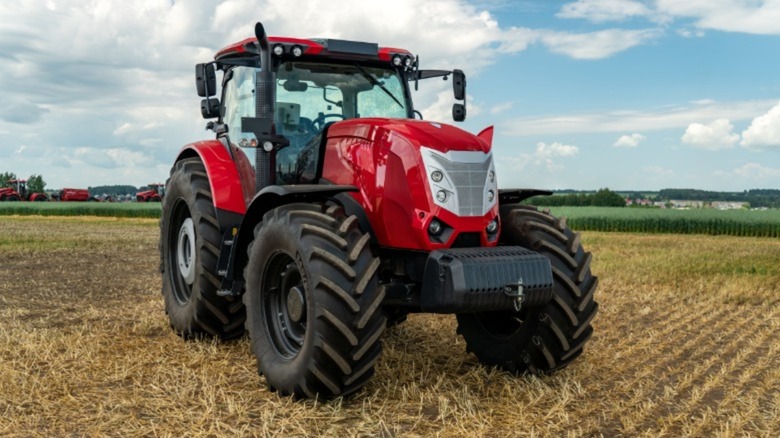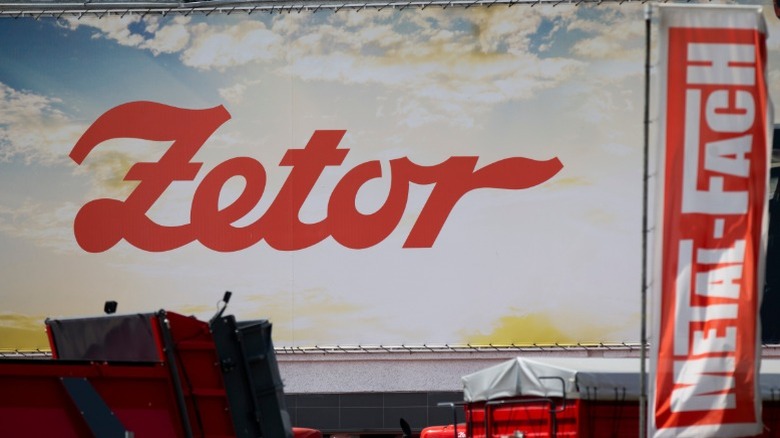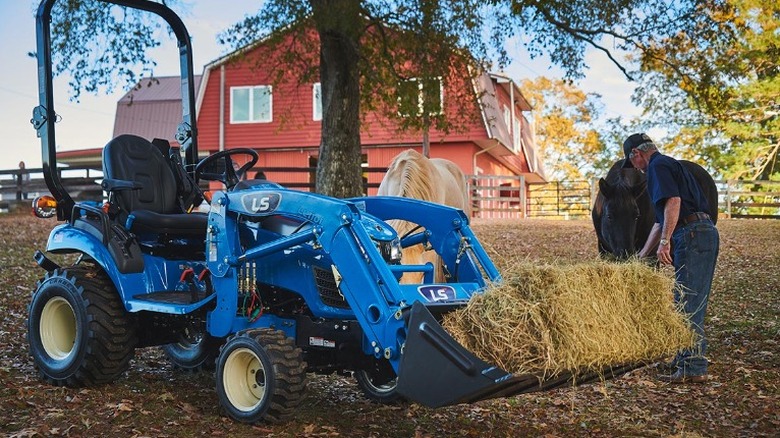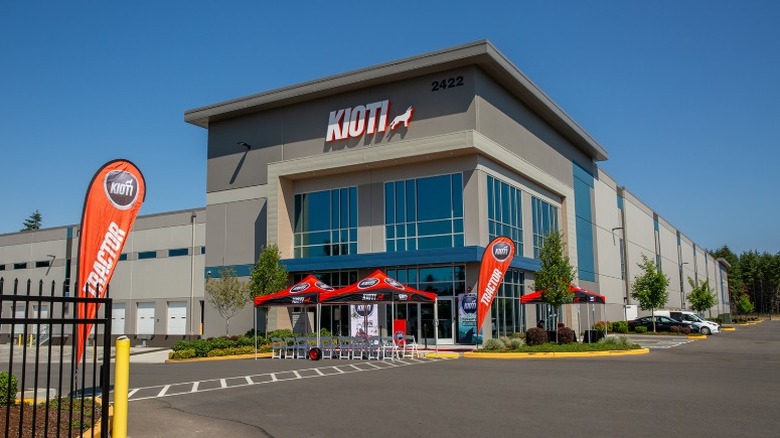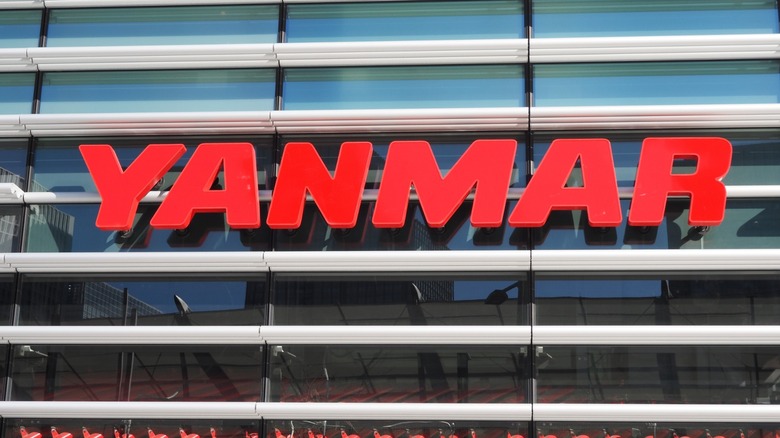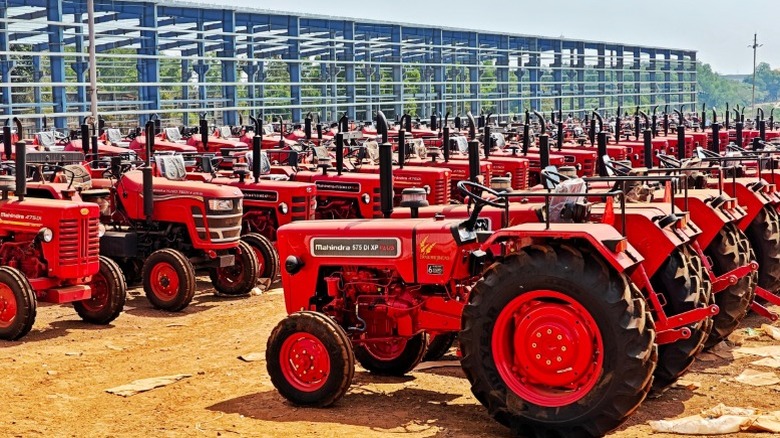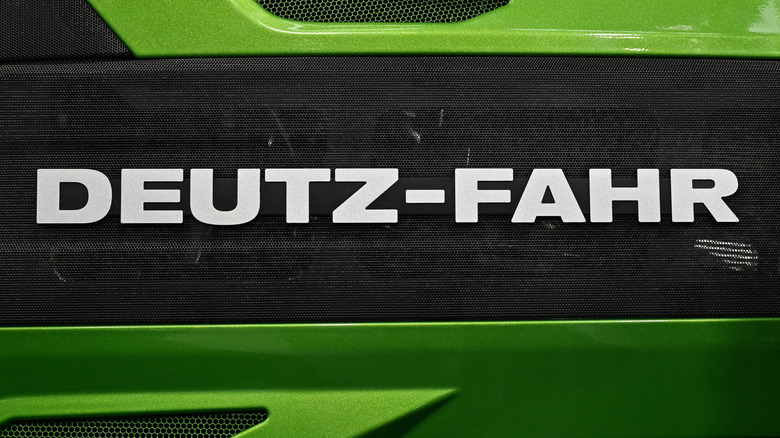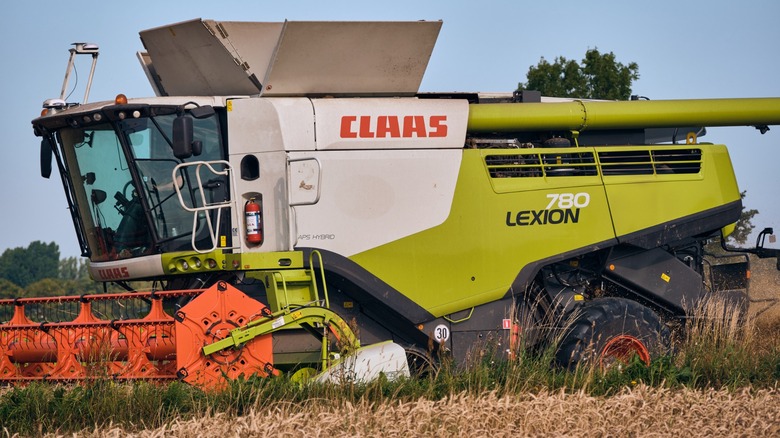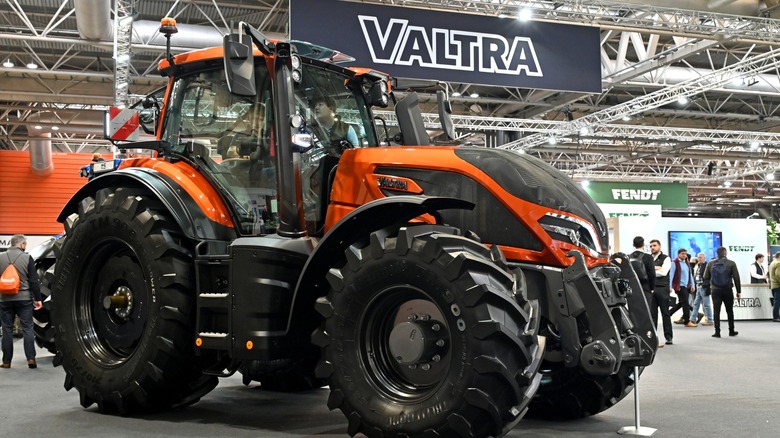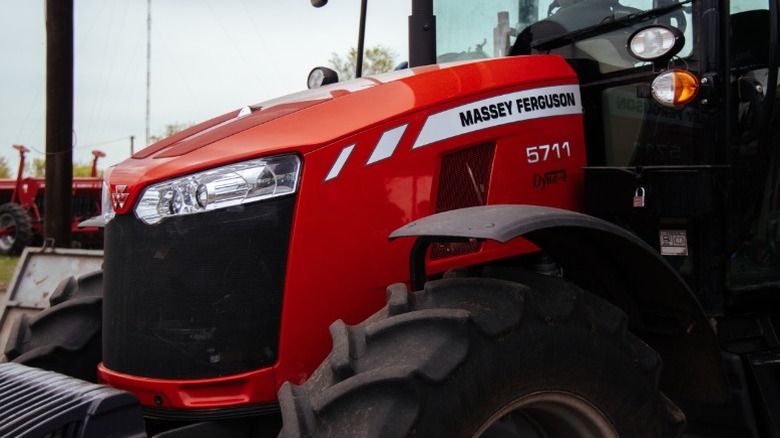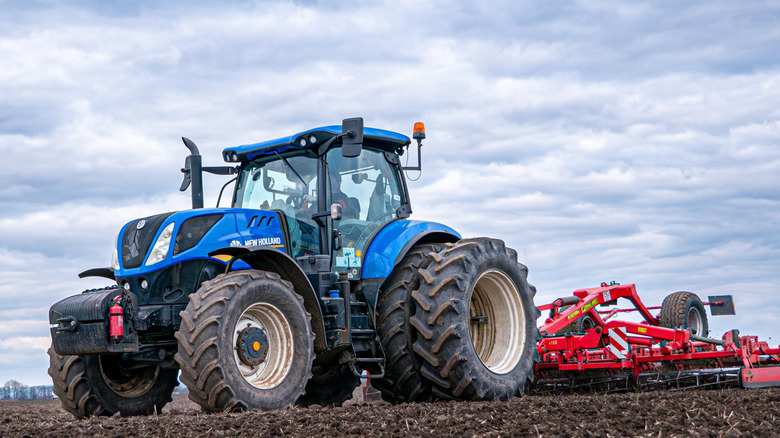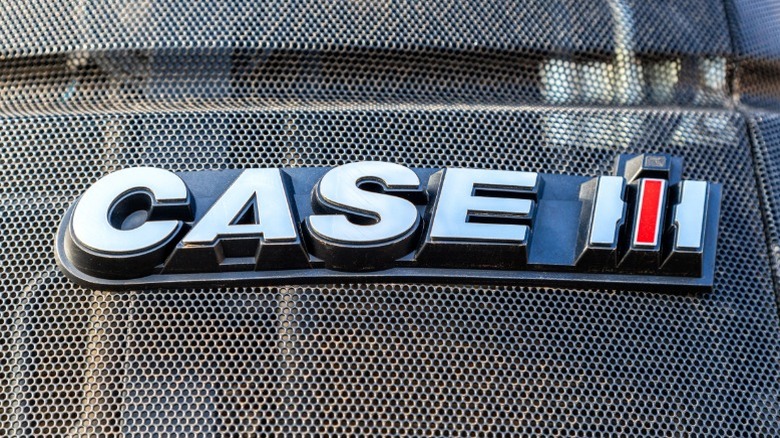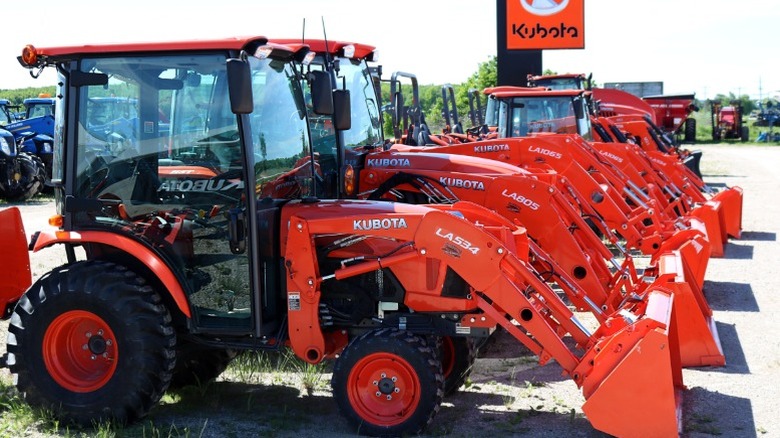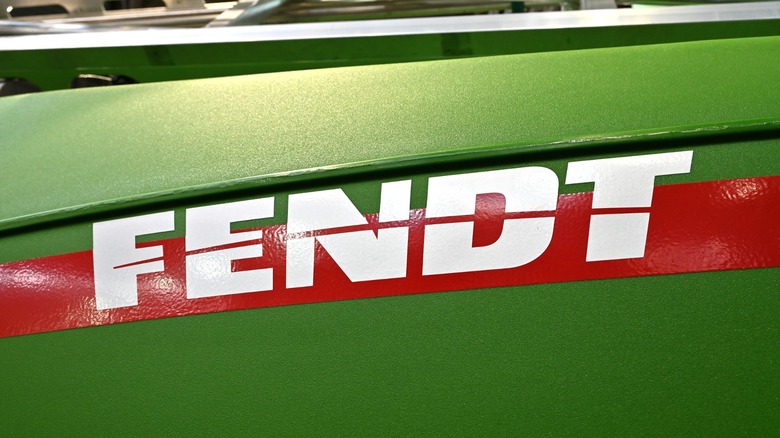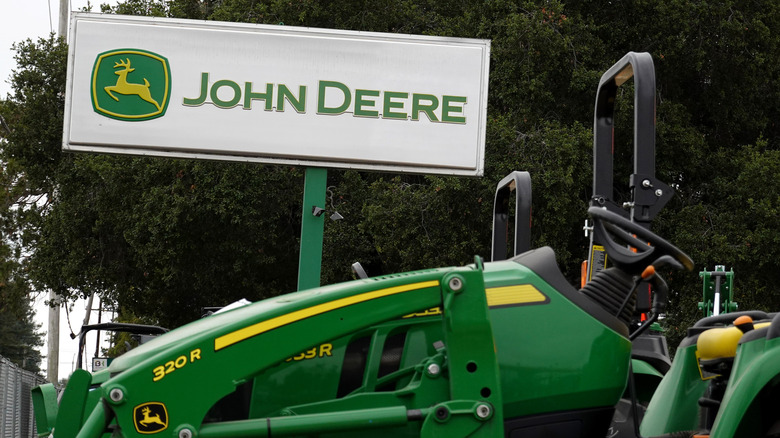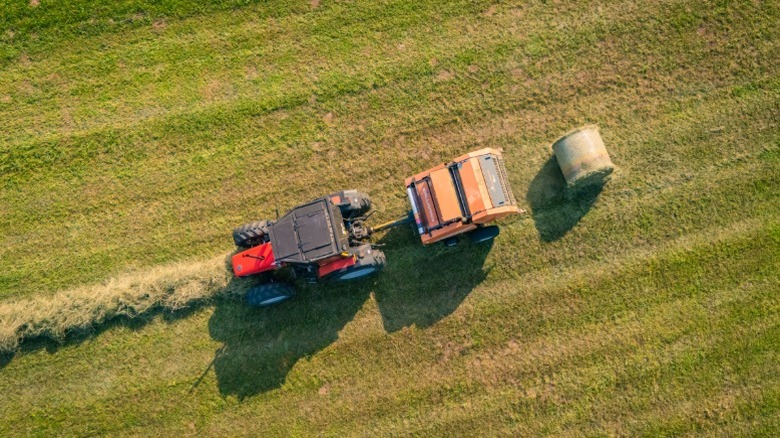Every Major Tractor Brand Ranked Worst To Best
When buying any machine for work, the main goal is to get value for your money. A mistake many people make, though, is buying from popular brands without doing proper research into them. But for farmers and landowners, the stakes couldn't be higher. The wrong tractor can cost you valuable time and money, while the right one can keep your operation running smoothly for years.
Tractors in the same price range often deliver very different results, and factors like servicing and dealer coverage can make or break your productivity. In fact, the Public Interest Research Group (PIRG) reports that you can lose up to $3,348 in a year from servicing downtime.To help you make the right choice, we've put together a list of 14 major tractor brands ranked from worst to best. Taking into consideration reliability, resale value, warranty, servicing coverage, and how much they're investing in new technology like fully electric tractors.
Zetor
Founded in 1946 in Brno, the Czech Republic, Zetor is a popular brand known for making simple, cheap, and durable tractors that work hard and are easy to repair. Some of the models that stood out include the Proxima series for handling general farm work, the Utilix series for smaller jobs, and the Crystal series for powering through intensive tasks like ploughing. But these days, the market has changed, and the simplicity that once made Zetor attractive so many years ago is now one of the factors limiting its appeal to many commercial farms.
The company's recent sales figures say it all. Sales reached up to 4,178 in 2014, but since then, they dropped to 1,743 units in 2022 and dropped even more to 1,026 units in 2023. Zetor has made progress on its existing range with the New Series 6, but there are not enough high-tech features compared to the larger global manufacturers.
Some farmers in North America and Australia have also shared their dissatisfaction with parts availability and limited dealership networks. As an owner, that means you could have a rugged and efficient tractor, but if something catastrophic happens, your tractor will be out of commission till you find replacements parts.
LS Tractor
LS Tractor is a sub-brand of LS Mtron, a South Korean organization operating since 1977. The brand is relatively new in North America and only officially arrived in the U.S. in 2009. But its incredible range of features and affordability helped LS quickly gain ground in the market. Naturally, that should get this brand much closer to the best tractor brands on this list, but a few issues are in the way.
Some of the major concerns around the LS Tractor include inconsistent parts availability, lower resale values, and quality control issues. Many U.S. regions still lack LS dealers as well. The brand has only 313 dealers across the U.S., which is far behind competitors like John Deere, which has up to 2,273, or Kubota with 1,100.
Because of this, warranty work and urgent repairs are more difficult compared to other brands with better networks. Although some of its components can be sourced from different manufacturers, owners have reported long wait times for necessary parts, plus unreliable aftermarket support, which can leave tractors out of action for a while.
Kioti (Daedong)
Kioti was founded in 1947 as the U.S. subsidiary of Daedong Corporation in South Korea. The brand is famous for its rugged frames, durable diesel engines, and very competitive warranty programs, making it a favorite among experienced farmers and those on a budget. Its CS, DK10, and CK10 series can handle general landscaping and small-farm tasks, and they come with user-friendly controls as well.
Kioti tractors also offer a solid resale value for their price range, as long as the machine is in good condition. That shouldn't be a problem, though, since Kioti tractors are well-known for their solid design and engineering, and handy features like eco-friendly diesel engines in its NS series, and powerful hydrostatic transmission in its CK series. Backed by its 6-year unlimited-hour power train warranty, this brand makes a solid case for a higher slot.
What makes Kioti lose points, though, is its dealer and service coverage. Kioti's network can't cover as much as bigger brands in the U.S., with only 432 dealers. Some owners have also reported inconsistent customer service by the brand. Either way, Kioti can be a great companion if you have a well-stocked, reputable local dealer and a parts pipeline you trust.
Yanmar
Founded in March 1912, Yanmar has evolved beyond its initial role as a manufacturer into supplying major parts for brands like Kubota, Mahindra, John Deere, and even LS Tractors. A major selling point is its engines, and it's built that reputation by creating one of the best V8 diesel engines ever. The company's tractors' compact size makes them an excellent fit for vineyards, orchards, and other farm areas where farmers would need light and fuel-efficient machines that can move around in tight spaces.
But it isn't all good news. Some models are considered very reliable, while others can bring up a few issues. For example, the older "00" series, like the YM1500 and YM2000 units, were popular because they were simple, and their mechanical transmissions and minimal electronics made them easy to repair with basic tools. It's also why owners praised their longevity. Then again, the later models, like the two-digit "F" series, introduced more complexity, such as powershift transmissions and turbocharged engines, which would need more complex repairs if damaged. Other common issues in these models include leaky water pumps, which can cause overheating, and hydraulic issues that could be difficult to repair.
Mahindra
Mahindra is the world's biggest tractor brand by volume (essentially, the brand has sold the most tractor units), maybe because it also has a hand in the jeep business. But despite being in high demand and having a wide dealer and service footprint worldwide, Mahindra is not as consistent as you might think.
In regions like India, Mahindra has excellent coverage, but in the U.S., there are just over 393 dealers, with the highest concentration in Texas (40). Rhode Island, Hawaii, and Puerto Rico don't have any dealers, so getting parts can become an issue for farmers in those areas. This can cause serious downtime, especially during harvest periods.
Second, just like Yanmar, model inconsistency is quite evident in Mahindra's range of tractors. While some models like the 275 DI are reliable, others like the 5000 series may suffer from minor but persistent issues, such as hydraulic or electrical problems.
Deutz-Fahr
Deutz-Fahr is known for its solid construction and a diverse range of tractor models, ranging from 66 hp up to 336 hp, but that wouldn't easily influence you if you knew the real reason why tractors usually have low horsepower. Aside from performance, the company is also big on new technology, which is why it recently introduced a suite of "SDF Smart Farming" tools designed for modern agriculture, including advanced guidance and data management systems.
However, Deutz-Fahr can't really compete with other top brands when it comes to consumer rankings. That's because the experience with its tractors varies significantly depending on the market and model, with some owners praising the brand for its quality and reliability, while many others feel frustrated with the lack of dealer availability, especially in the U.S.
Other issues that users reported include non-intuitive controls on high-tech models like the 7250 TTV. Others have complained that it's hard to get manuals for models like the M660. This makes it harder to troubleshoot the machine, unlike with simpler tractor brands like Zetor. Nonetheless, it's very possible to find a fantastic Deutz-Fahr tractor, but that will most likely depend on choosing the right model and having a capable local dealer.
Claas
As the creators of the world's largest mower, Claas has earned its reputation as a go-to name in farming because of its popular harvesting and forage equipment. The Claas brand is built on two engineering principles: reliability and performance. Both of these principles are seen in features like great hydraulics, user-friendly controls, and well-designed cabs that prioritize comfort for long workdays.
A plus for many farmers is the Class brand's comfortable design – models come with spacious cabins and intuitive loader controls, making them one of the best tractors for heavy use over long hours. However, it has some availability issues. Claas has a strong presence in Europe, but its dealer and parts network is limited in North America and Australia. Some users also mentioned occasional issues affecting the Arion and Axos models, such as head gasket and axle wear complaints, but they seem more like isolated incidents rather than widespread problems across the brand.
Valtra
The later a brand appears on this list, the harder it is to find any major issues. Take Valtra, for example. Founded in 1951 in Finland, Valtra tractors are built to perform in extreme climates over hard, long seasons. Models like the A series have great hydraulics, comfortable cab layouts, and inner components that can withstand and adapt easily to harsh and cold climates. Its tractors also come with a multi-purpose design and can be customized to handle tasks outside of farming, and that's a real strength for those who need special configurations instead of off-the-shelf machines.
Despite all this, Valtra struggles to keep up with the competition. When standing next to foreign brands like Mahindra, Valtra's dealer and parts network is not bad. But the problem is circulation. Valtra's core markets are centered around Finland and parts of Europe, which leaves many North American owners to fix their machines and get spare parts by themselves. Some owners have also reported higher prices for parts in areas outside Valtra's core market.
Massey Ferguson
Massey Ferguson is a globally recognized sub-brand of the AGCO Corporation, which bought Ferguson's rights in 1994 for $328 million. The company's main manufacturing plant in France is responsible for about 85% of its total production, and exporting them to over 140 countries worldwide. Massey Ferguson was formed from a 1953 merger between farm equipment makers Massey-Harris and Harry Ferguson, a man some believe helped change the automotive industry forever.
Massey Ferguson's tractor product line features light and heavyweight performers. Some of its popular models include the 4700 Global Series for all-around performance and the compact 1500 series, which can churn out up to 25 hp, making it perfect for smaller tasks and projects. The 8700 series comes with up to 405 hp, so it's the best option for heavy-duty projects.
Since Massey Ferguson was taken over, AGCO Corporation has been in charge of the worldwide distribution and dealership of the tractors. However, despite being a big player in the tractor market, Massey Ferguson's sales don't tell the same story. According to its 2024 report, Massey Ferguson recorded $11.7 billion in sales, showing a decline of 19.1% since 2023.
That said, some recent model generations, like the MF 385 are laced with issues like overheating, starting problems, and hydraulic system issues. The brand has also faced some serious financial problems, even going bankrupt once. Nonetheless, Massey's global footprint, proven models, and broad service support make it a dependable mainstream option.
New Holland
New Holland's biggest strength is its range of machines. Founded way back in 1895, the company's model line covers almost every agricultural need, from compact Boomer models for light work to powerful Genesis T8 tractors. New Holland was initially operating under Ford, but it was sold off to Fiat and later CNH Industrial when Ford decided to stop making tractors. Combined with its new parent company's distribution, New Holland provides strong dealer coverage worldwide and the ability to match a machine to any mission and budget.
New Holland's compact Boomer and Workmaster series are good for homeowners, landscapers, and small farms. The Boomer range, with 35–55 hp, is user-friendly and easy to maintain, while the Workmaster series offers greater lift capacity for the difficult jobs. Both series can save fuel while providing enough comfort, making them a steal among modern tractors.
Why New Holland ranks this high, though, is because of its support services, including fast parts delivery and competitive warranty programs. Unfortunately, New Holland doesn't offer the high-end luxury compared to bigger European brands, but it efficiently balances capability, modern features, and sensible pricing, so it's a wise choice for many farms.
Case IH
Case IH tractors are ideal for large-scale farming operations that require more power and efficiency. Popular models include the Magnum and Quadtrac series ,with machines designed for heavy-duty work and built with a high peak engine horsepower and torque – enough to run smoothly on long, productive workdays. The Case IH Quadtrac 715 even won the 2025 Tractor of the Year HighPower award due to its performance, comfort, connectivity, and focus on soil health.
A huge boost, though, comes from advanced features; precision tools and telematics systems like FieldOps and AFS Connect enable remote fleet monitoring and diagnostics. This means it's easier to quickly spot and resolve issues instead of letting the tractor sit idle. This seamless mix of hardware and software makes Case IH stand out in industry rankings, and it's why the brand was awarded two Good Design awards for the Farmall 75C Electric and the Steiger Quadtrac 715 tractors.
Truth be told, Case IH tractors come at a higher price point, with more popular models like the compact Farmall 55A selling at $43,038, roughly $6,500 more than similar models like Yanmar's YM347, which starts at $36,599 (figures may vary depending on the dealer). The machines are high maintenance, though and require well-trained dealer networks to get the best out of them. However, they're still a smart investment for those who value efficiency and high productivity.
Kubota
Kubota is usually ranked as part of the top three tractor brands because of its reliability and practicality. It was initially founded in Osaka, Japan, under the larger Kubota Corporation, but the major assembly process happens overseas in the U.S. The brand produces a diverse range of machines, from compact BX/B-series models to the larger M-series. It also has a robust dealer network and factory-trained technicians, helping Kubota reduce downtime and keep its high resale values, especially when compared with competitors.
Many owners reported excellent resale value after up to five years, which is partly due to Kubota's heavy manufacturing presence in the U.S. and efficient parts supply and service response.
Additionally, Kubota is highly trusted for its dependable engines and a wide selection of attachments. Its engines are made from high-quality materials and power the brand's entire equipment range. Backed by advanced fuel-injection systems and engine management technologies, these help to improve combustion and reduce emissions.
Fendt
Fendt earns its spot among the top tractor brands by focusing on efficiency, comfort, and cutting-edge engineering that ultimately saves farmers money in the long run, despite the higher initial costs of buying a tractor. Fendt is infamous for its German engineering, especially with models like the Gen 6700 series, but the brand also gained major recognition for its innovative Vario continuously variable transmission (CVT). This system delivers stepless power, so the engine operates at optimal performance for any load, offering better fuel economy and reduced wear over time.
Fendt tractors are also designed with operator comfort in mind, which is why they come with advanced hydraulics and ISOBUS/precision-farming compatibility to improve productivity. These features have won the tractor brand numerous industry awards, like the 2025 Midpower Tractor of the Year award, highlighting their real-world benefits for professional farms.
The only downside with this brand is that Fendt tractors come with a higher price tag and are more common in Europe. Still, this tractor will easily handle commercial farming with efficiency, comfort, and high output.
John Deere
Of all the brands on the list, John Deere, founded almost two centuries ago in Illinois, has one of the most patriotic histories. What started back in 1837 with a blacksmith shop and a self-steering steel plow has grown into a widely recognized tractor brand and a reputation as a leader in farming tech. According to a 2021 Progressive Farmer Reader Insights survey, John Deere was named the brand with the highest customer loyalty, cementing its place as the people's brand.
Deere's catchphrase "Nothing runs like a Deere" is supported by the reliable output of multiple models in its production line. While the majority of its production is done in manufacturing facilities worldwide, some of Deere's models come with engines from other manufacturers. Regardless of the components, the outcome is the same: performance, durability, and value. Deere models under the 8R and 9R series combine advanced precision farming tools, power, and reliability to set the industry standard for large-scale commercial operations.
Overall, John Deere's blend of great machines, extensive supply networks, and advanced precision agriculture solutions consistently ranks it at the top of most reviews. The only criticism this brand sometimes faces relates to pricing, but realistically, owning a Deere is a lower risk and a more predictable experience.
Methodology
To build this list, we relied on historical records, expert and customer reviews, and direct feedback from farmers to capture the strengths and weaknesses of each major tractor brand. We considered when and where each company was founded, the breadth of its product line, and how much of the global market it serves. Technology and innovation also played a role, including whether a brand invests in precision farming tools, efficiency upgrades, and operator comfort. We also weighed reputation factors such as reliability, dealer support, and resale value, while taking into account recognition through awards and industry surveys.
